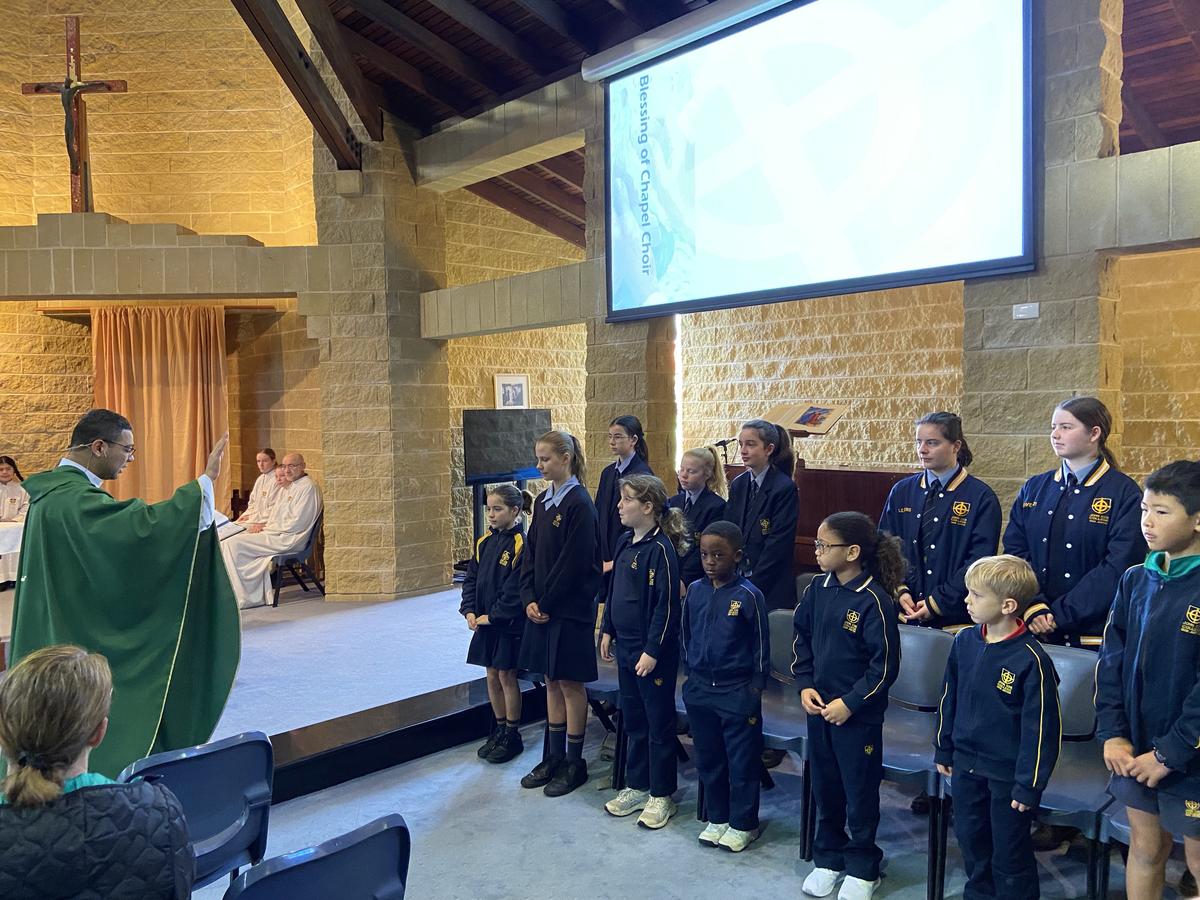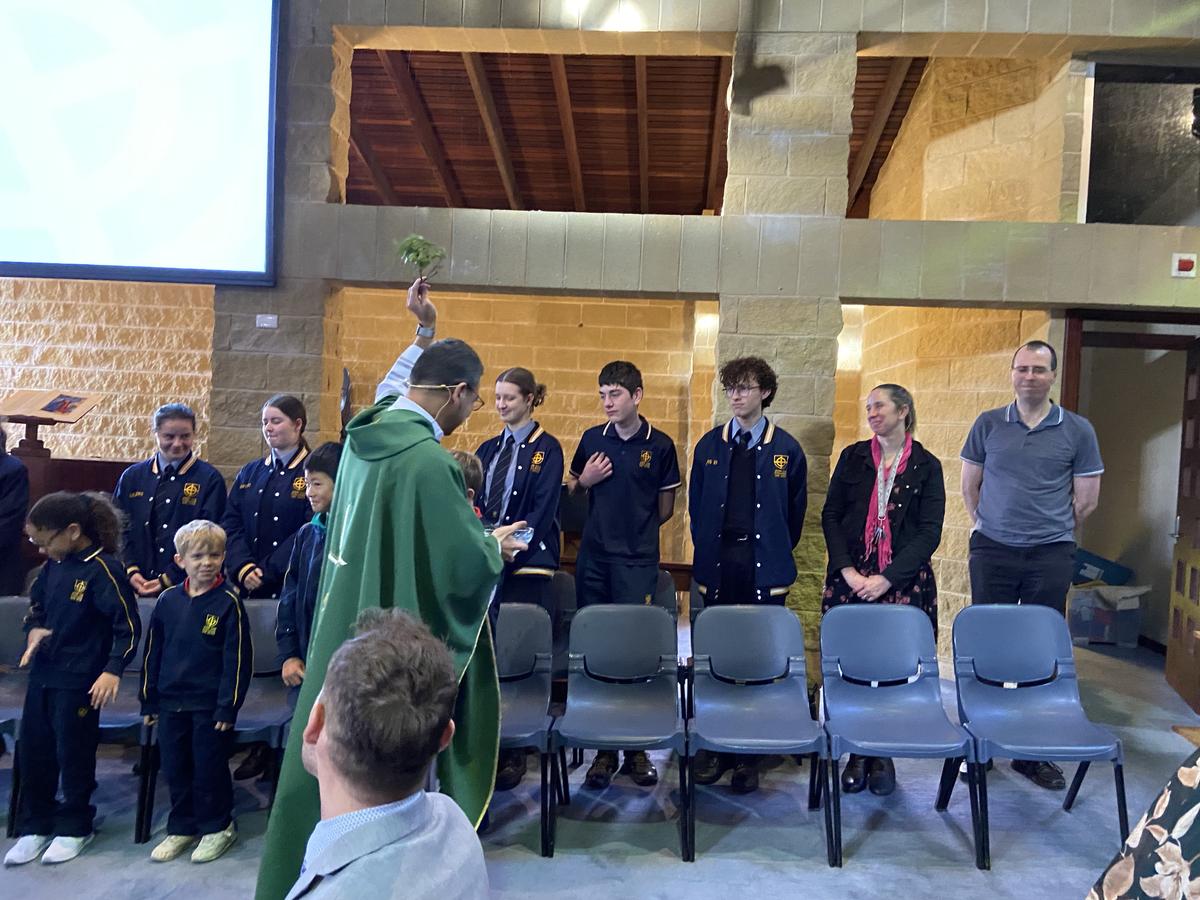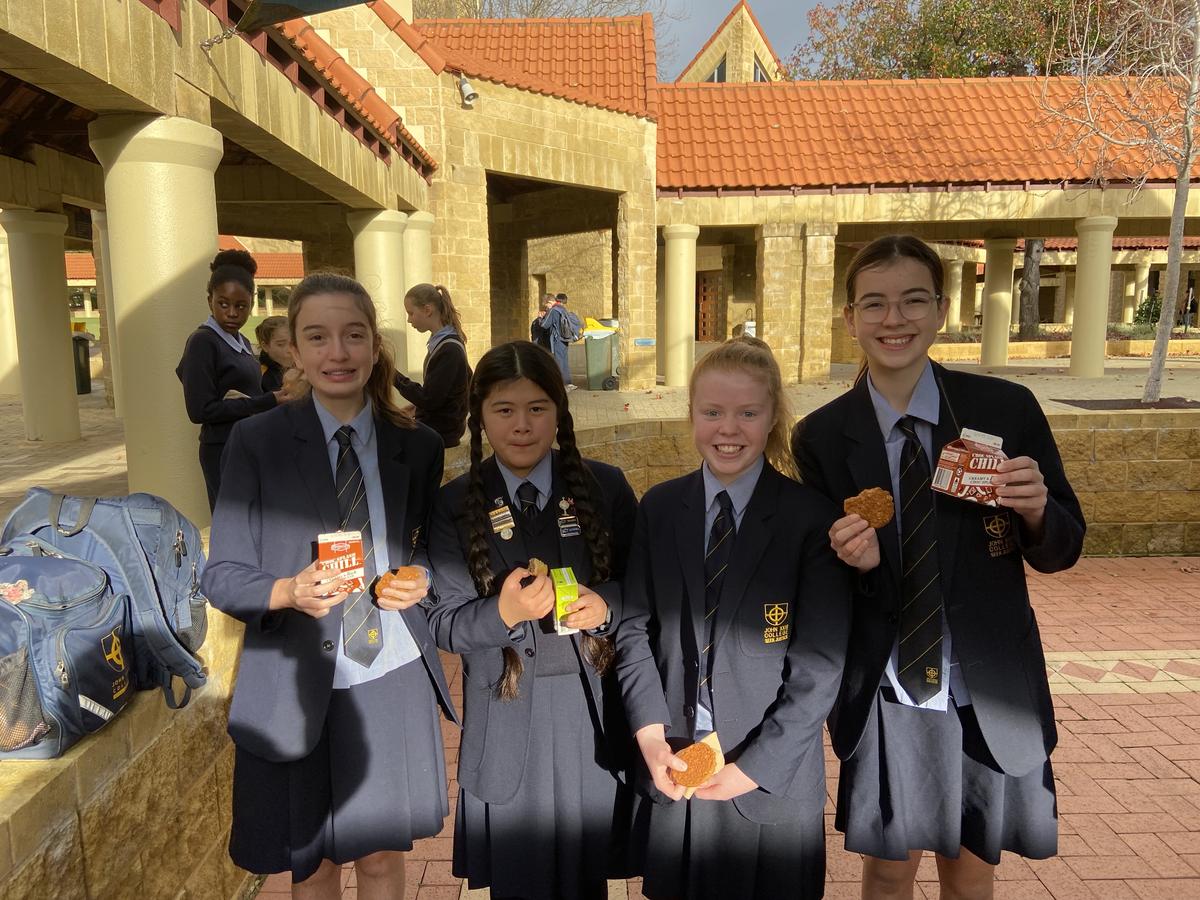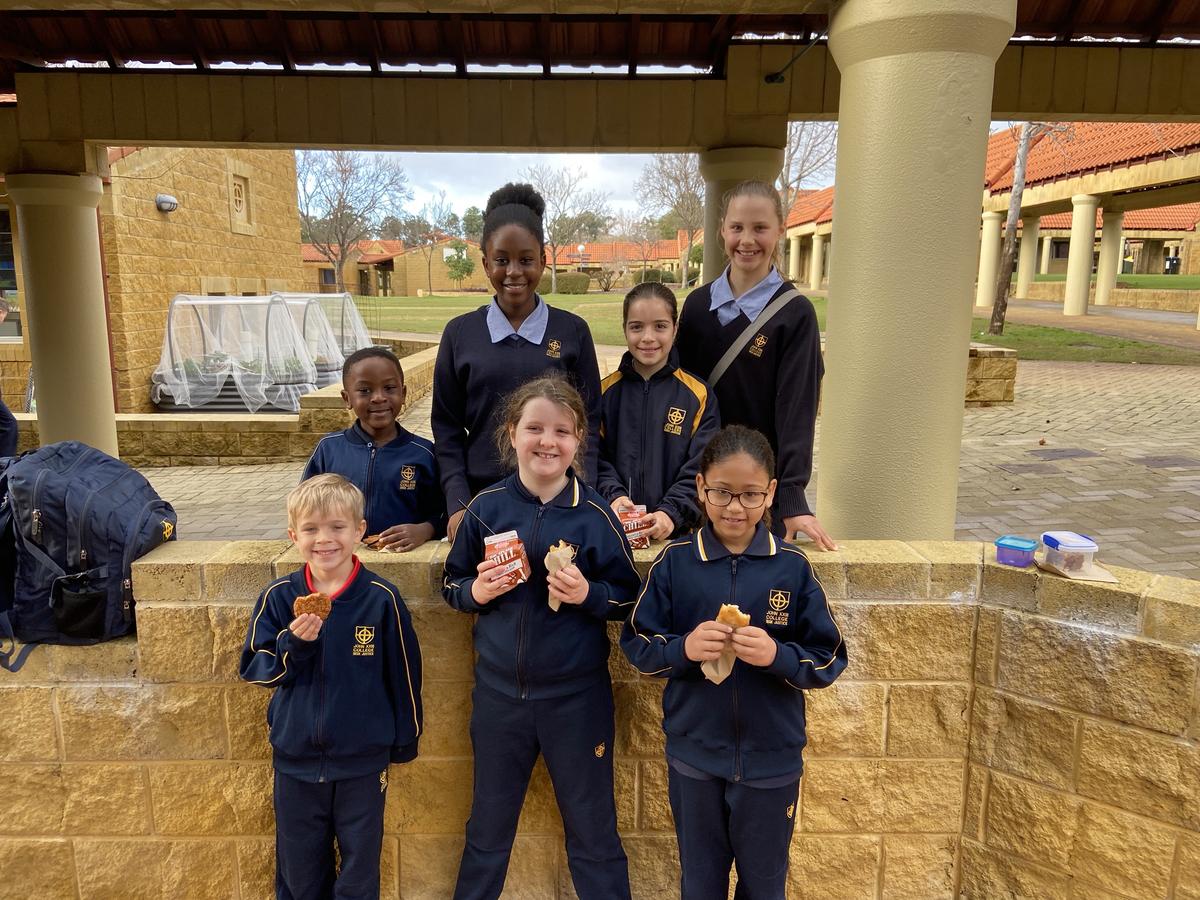Liturgy
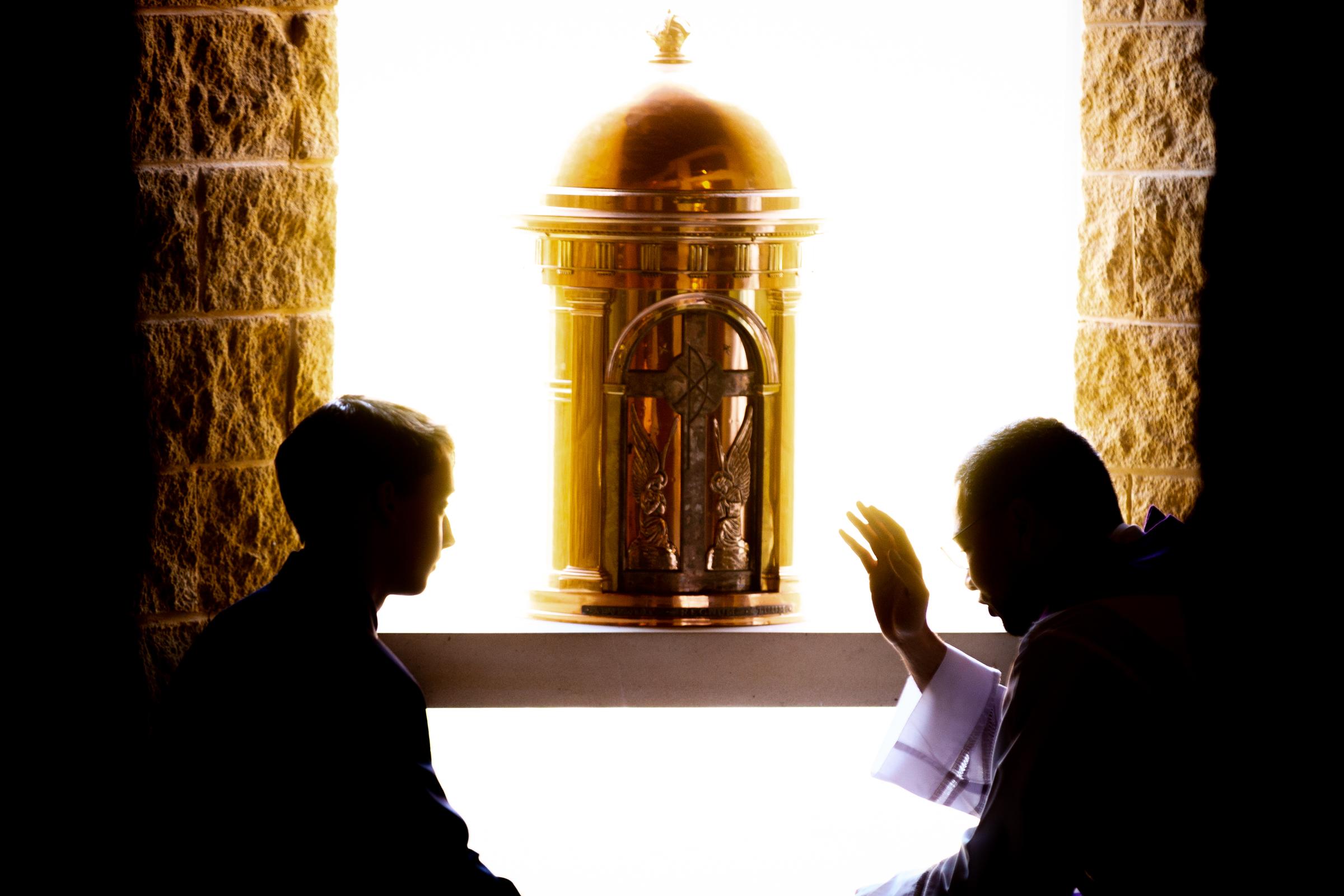
Community Mass
Thursday 29 July is the date of our next Community Mass. Due to Secondary being off-site for the Kevin King Cup, for next week only we will celebrate the Eucharist on Thursday. Loyola House will prepare the readings and prayer. Loyola families are especially welcome to attend this Mass.
Thank you to our Year 12 students who enthusiastically prepared this morning’s Mass – and to all the parents who attended.
This morning we also prayed God’s blessing on the members of our Chapel Choir: students from Primary and Secondary; Director, Mrs Haydon and accompanist, Mr Johnston. After Mass College Principal, Mr Henderson, acknowledged Chapel Choir’s weekly commitment which brings so much joy and beauty to our weekly celebrations of the Eucharist. We also recognise the enormous support provided by parents of choir members. Thank you!
Community Mass details
- College Chapel
- Fridays in term time
- Starts: 8:00am and concludes 8:30am
NB Next week Mass will be on Thursday 29 July instead. (NO Mass on the Friday).
SACRAMENT PROGRAM
Information from some of our local parishes
Saint Thomas Apostle, Claremont
Confirmation Friday 27 August
Reconciliation October
Please note that, due to current COVID restrictions on maximum capacity, priority for enrolment will go to families who are in the parish of Saint Thomas Apostle. Further information is available here.
Enrolment forms are available from silvia.kinder@iona.wa.edu.au
St Mary Star of the Sea, Cottesloe/Corpus Christi, Mosman Park
Confirmation Sunday 7 November
Information Day: 5 August, 4-5pm Parish Centre
Enrolment information and contact details for the Sacrament Coordinator may be found here.
Further information regarding 2021 Sacrament programs available from:
- Archdiocesan website;
- College website here
- Mary-Anne Lumley mary-anne.lumley@cew.edu.au OR 08 9383 0513
GOOD NEWS for 17th SUNDAY IN ORDINARY TIME
This Sunday’s Gospel is from John 6:1-15. The reflection below is from a longer Homily by Rev. Professor Michael Tate and is used with permission. Michael Tate was a Senator for Tasmania from 1978-93 and Ambassador to The Hague and the Holy See from 1993-96. He is currently Vicar-General in the Archdiocese of Hobart and is an Honorary Professor of Law at the University of Tasmania where he lectures in International Humanitarian Law.
A young person and the hungers of humanity
… Confronted with a crowd of hungry people, Jesus asks his disciples: ‘How are we to buy bread, so that these people may eat?’ Philip starts answering in market economy terms: ‘Two hundred denarii wouldn’t be enough.’
Jesus actually wasn’t interested in a buying and selling answer. Jesus hoped that his followers, who had been with him for a while now, would have got beyond thinking that the way to satisfy people’s hunger for food (or anything else) is always going to be in market terms. It was a young person, maybe a boy of nine or ten, who put the disciples to shame and fulfilled Jesus’ expectations.
What does the gospel tell us? ‘There is a lad here with five barley loaves and two fish.’ So what? As Andrew put it: ‘What is that amongst so many?’ If the boy had adopted the disciples’ attitude he would have sold them and made a small fortune from some ravenous few of the hungry crowd.
But something about Jesus’ compassion set this boy’s heart beating to the same rhythm as that of Jesus. The boy simply handed over the five loaves and two fish. It was the generosity of this young boy which triggered something which allowed Jesus to feed the crowd. It was because this young lad was open-handed that a divine generosity and open-handedness rippled through the crowd.
We don’t know quite what happened. Suffice it to say that Jesus’ divine compassion was made effective in the world through that boy’s initial response.
Voluntary renunciation of property and sharing of wealth still occurs in the little oases of monasteries and convents, echoes of the radical redistribution of wealth recorded in the Acts of the Apostles (Acts 4:32-35). St Luke makes it clear that this was essentially linked to the Apostles’ testifying to the Resurrection ‘with great power’.
Francis of Assisi and now Francis of Buenos Aires* remind us that the Church itself needs to engage in the redistribution of its wealth to enable the hungers of humanity to be satisfied. This will give authenticity to its preaching of the Gospel, and enable its evangelising to be undertaken ‘with great power’.
We could take a moment to pray that we become more like the little boy in the Gospel, more like Francis of Assisi, more like Francis of Buenos Aires, voluntarily sharing our wealth to satisfy the hungers of humanity.
(*Pope Francis)
© Michael Tate


